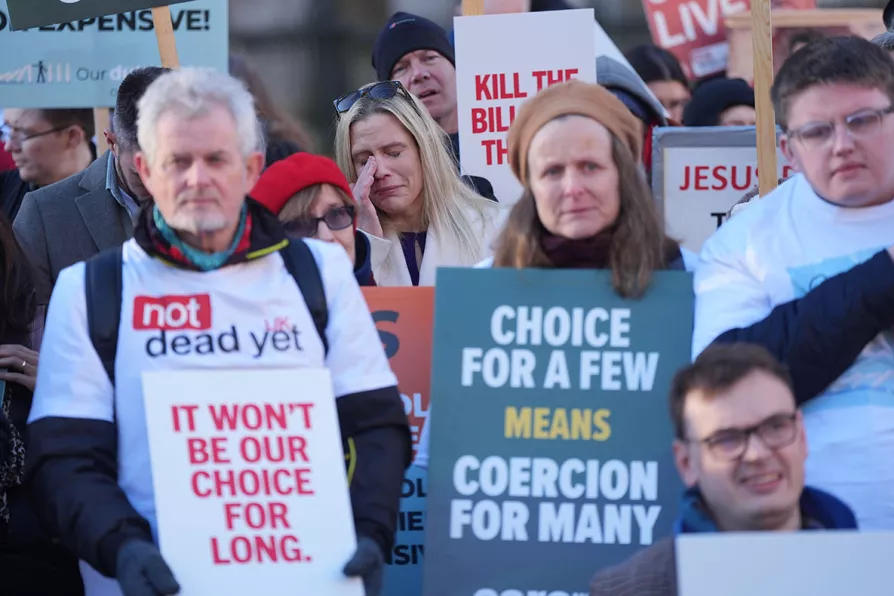Disabled activists criticise Assisted Dying Bill evidence gathering process

 People take part in a demonstration at Old Palace Yard in Westminster, London, to oppose the Terminally Ill Adults (End of Life) Bill, November 29, 2024
People take part in a demonstration at Old Palace Yard in Westminster, London, to oppose the Terminally Ill Adults (End of Life) Bill, November 29, 2024
DISABLED activists have criticised inadequate scrutiny of the Assisted Dying Bill after the committee overseeing evidence gathering finally allowed them to be witnesses.
The UK Deaf and Disabled People’s Monitoring Coalition welcomed the decision to include Disability Rights UK (DRUK) in the list of those giving oral evidence to the Commons general committee this week.
But it said that the move came too late in a process that has been “inaccessible and dismissive” of deaf and disabled people’s concerns.
Similar stories

Campaigners vow to keep up fight against Assisted Dying Bill as it clears House of Commons

DANIEL GOVER considers the procedural complexities awaiting a Private Member’s Bill in its passage through Commons and Lords












